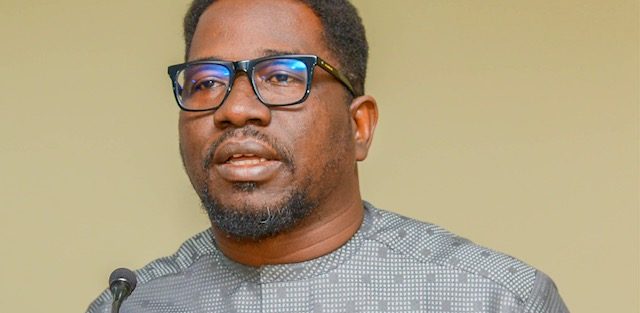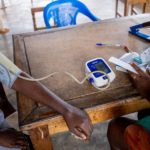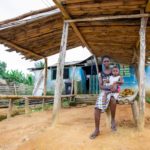Globally, pursuing health equity is a continuous endeavour, and Ghana is no exception. Despite strides in healthcare delivery and access, the nation faces multifaceted challenges that impede progress toward achieving equitable health outcomes for all.
Ghana’s healthcare system is grappling with systemic issues that undermine its capacity to deliver equitable care. Inadequate funding and resource allocation pose significant barriers to addressing health disparities, limiting the availability of essential medical supplies, facilities, and skilled healthcare professionals. Staff shortages particularly in rural areas increase the strain on healthcare delivery leading to overcrowded facilities and prolonged wait times for patients.
Furthermore, persistent gaps in healthcare infrastructure, including inadequate facilities and outdated equipment, hamper the provision of quality healthcare, particularly in underserved regions. Considering these challenges to healthcare, the question arises: Is World Health Day (WHD) worth celebrating? How do we leverage the celebration to advocate for improved health outcomes?
Commemorating World Health Day
World Health Day is not merely a date on the calendar, it symbolizes a global call to action, says Dr. Joseph Dodoo, a Health Policy and Systems Analyst.
According to him, the day offers a key opportunity to raise awareness about global health issues, particularly those affecting vulnerable populations like children and girls. He believes World Health Day reminds governments, organizations, and individuals to prioritize and invest in health and wellness, promoting health equity and social justice.
In Ghana where a significant portion of the population comprises young individuals, addressing challenges such as adolescent pregnancy, limited access to healthcare, and gender-based violence becomes imperative on a day like this, highlighting the urgency for comprehensive efforts to tackle these issues and nurture the well-being of Ghana’s youth, Dr. Dodoo said.
He shared his perspective with ARHR as part of activities to commemorate World Health Day, under the theme “My Health, My Right”.
Relevance of the theme “My Health, My Right”
Dr Dodoo applauds this year’s theme for spotlighting the undeniable fact that health is a fundamental human right. He acknowledges Ghana’s constitutional provisions guaranteeing the right to health.
‘‘Article 34 (2) of the 1992 Constitution of the Republic of Ghana enjoins the state to ensure the realization of the right to good healthcare for people living in Ghana irrespective of colour, race, geographical location, religion and political affiliation’’, he reveals.
Given the above, governments over the years have implemented policies and programs that aim to improve access to healthcare services, reduce financial barriers and prioritize primary healthcare for all citizens.
He mentions that Ghana’s efforts toward health for all are manifested through initiatives such as the National Health Insurance Scheme (NHIS) and the Community-based Health Planning and Services (CHPS).
“With evident health inequities persisting, initiatives like the National Health Insurance Scheme (NHIS) and Community-based Health Planning and Services (CHPS) strive to bridge the gap, ensuring universal access to quality healthcare”, he added.
Dr. Dodoo explained that the introduction of the National Health Insurance Scheme (NHIS), a significant health financing reform, focuses on reducing socioeconomic inequalities in healthcare utilization by providing financial risk protection to poor and vulnerable populations. The Community-based Health Planning and Services (CHPS) also aims to address health inequities by ensuring that essential health services are accessible to all, regardless of their socio-economic status or geographic location.
Further, he highlighted the government’s focus on UHC, which guarantees timely and equitable access to quality health services without financial hardship, evident through the implementation of Ghana’s UHC roadmap.
The Health Policy and Systems Analyst believes the empowerment of people is key, adding that frameworks like the Patient Charter empower individuals to demand quality healthcare services, fostering a culture of accountability and respect within the healthcare system.
The Patient Charter includes principles such as health protection, access to information, participation in decision-making, privacy, dignity, and the right to safe healthcare. The Patient Charter aims to ensure that patients are treated with respect, have access to necessary information, and are actively involved in their care decisions.
Recommendations for Progress
Dr. Dodoo advocated for a clearer understanding of the right to health versus the right to good health within Ghana’s legal framework and called for concerted advocacy efforts to be led by Civil Society Organizations to amplify the demand for equitable healthcare services.
‘‘Conceptual clarity on what the right to good health means is essential to advancing the discourse on the right to health in Ghana’’, he mentions.
He urged for a holistic, multi-sectoral approach to improve the interconnectedness of health with social determinants like access to food, water, housing, and education. He emphasized the need to embrace a progressive approach towards realizing the right to health, encompassing non-discrimination and equal treatment in national public health strategies.
‘‘The progressive realization of the right to health involves taking deliberate steps towards its full realization, including non-discrimination, equal treatment, and the development of national public health strategies’’, he concluded.
ABOUT OUR RESOURCE PERSON
Dr. Dodoo is a seasoned Health Policy and Systems Analyst, bringing over a decade of experience to his role at the Policy Planning Monitoring and Evaluation Directorate of the Ministry of Health, Ghana. With a keen focus on addressing health disparities and promoting equitable access to healthcare, Joe plays a vital role in shaping policies that impact the well-being of Ghana’s population.



